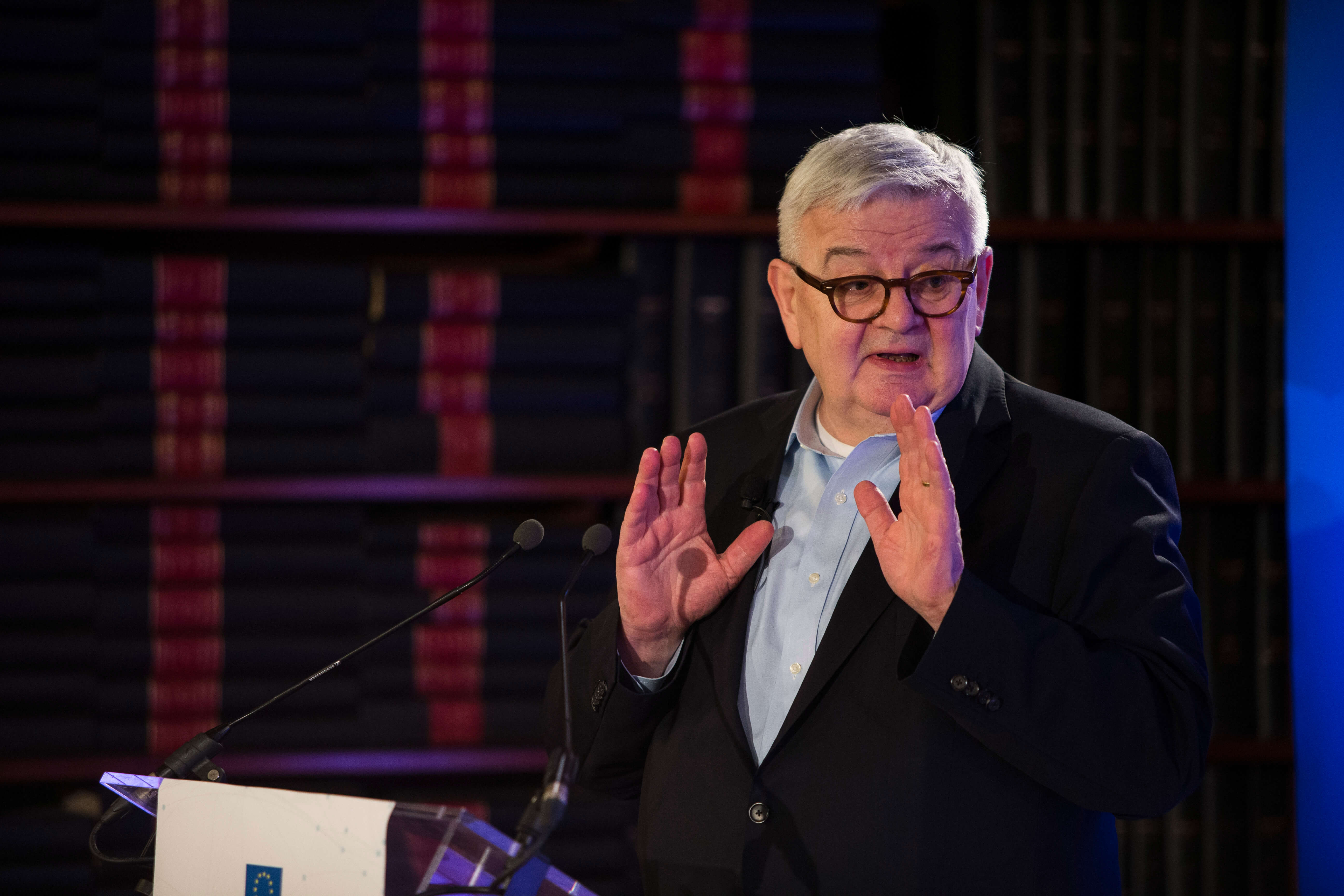There can be little doubt that Europe owes the United States a great deal. No one should ever forget America’s decades-long defense of freedom in Western Europe and West Berlin, the successful financing of reconstruction after World War II, victory in the Cold War, and Europe’s unification under the security umbrella of NATO.
For Europe, these were successful, happy, and (it must be said) comfortable decades. But they also lulled Europeans into complacency.
We failed to notice that the perspective from the center of the American empire was very different from our own; that the US felt burdened and overstretched; and that it was increasingly carrying more weight than its European periphery.
The Americans fought costly wars in the interest of the overall empire, while we perfected our welfare states.
The Iraq War, the 2008 financial crisis, years of deindustrialization, and US elites’ arrogance toward working-class and rural voters created ideal conditions for a demagogue to come to power, and that is what happened when Donald Trump took over the Republican Party and won the 2016 presidential election.
His success was so shocking that even he did not fully grasp what had happened. But that was no longer the case when he was elected again a year ago.
Since his second inauguration in January, the transatlantic world has been fundamentally altered.
Trump’s ideology
Many things can be said about Trump, but one thing you could never call him is an ideologue. Trump’s ideology is Trump – nothing more.
But the same cannot be said of his vice president, JD Vance, nor of his inner circle at the White House, nor of the broader MAGA (“Make America Great Again”) movement that supports him.
Now that MAGA holds power in the US, Bannon sees opportunities to expand the movement by exerting pressure on the “decadent” Europeans
One of the movement’s leading ideologues, Steven Bannon, views the world as a battlefield between the Judeo-Christian tradition and its enemies – who include exponents of Western liberalism itself.
He believes allies are needed to win this global culture war, and he thinks he has found them in Europe’s right-wing populist parties.
Now that MAGA holds power in the US, Bannon sees opportunities to expand the movement by exerting pressure on the “decadent” Europeans.
The EU’s goal is to overcome nationalism
This also seemed to be Vance’s intention when he delivered his notorious address to the Munich Security Conference in February.
Chastising the European officials in the room, he portrayed the far-right Alternative for Germany party as the victim of censorship, even as the Trump administration was suing media outlets and cracking down on universities at home.
Bannon and his allies reject everything the European Union stands for. Founded on liberal values, the EU’s goal is to overcome nationalism through ever-deeper integration.
MAGA is unapologetically nationalist, and it is eager to make common cause with others who share its chauvinist view of politics
But MAGA is unapologetically nationalist, and it is eager to make common cause with others who share its chauvinist view of politics.
Thus, under Trump, transatlanticism is being turned on its head. It is no longer an internationalist project, but a nationalist one.
The irony should be obvious. Lest we forget, transatlanticism emerged from the fight against the Nazis’ extreme German nationalism and genocidal racism in WWII, and it was maintained through the Cold War against the Soviet Union.
Nationalism is war
But even if we acknowledge that Europe lived comfortably for several decades as an American protectorate, we must not succumb to the current US administration’s pressure.
As much as we owe America, we also have obligations to ourselves – to the values and principles that we have long lived by.
 If the American radical right were indeed to try to bring down Europe’s post-nationalist project only one person would rejoice: Vladimir Putin - Joschka Fischer
If the American radical right were indeed to try to bring down Europe’s post-nationalist project only one person would rejoice: Vladimir Putin - Joschka Fischer
America may have abandoned liberal values and embraced populist nationalism, but that does not mean we should do the same.
In fact, it would be catastrophic for Europe – and especially for Germany – to accept such a self-transformation.
We must never forget the warning that former French President François Mitterrand issued in his final speech before the European Parliament: “Nationalism is war.”
In just a few words, he distilled the essence of Europe’s disastrous experience with this form of politics. For us, this is not about some abstract ideology; it is about Europe’s legacy as the most violent place on Earth until 1945.
If the American radical right were indeed to try to bring down Europe’s post-nationalist project – an edifice that has been built with great effort over many generations – only one person would rejoice: Vladimir Putin.
It would be an utterly tragic and absurd outcome – a kind of dialectic of unreason.
Joschka Fischer, Germany’s foreign minister and vice chancellor from 1998 to 2005, was a leader of the German Green Party for almost 20 years.